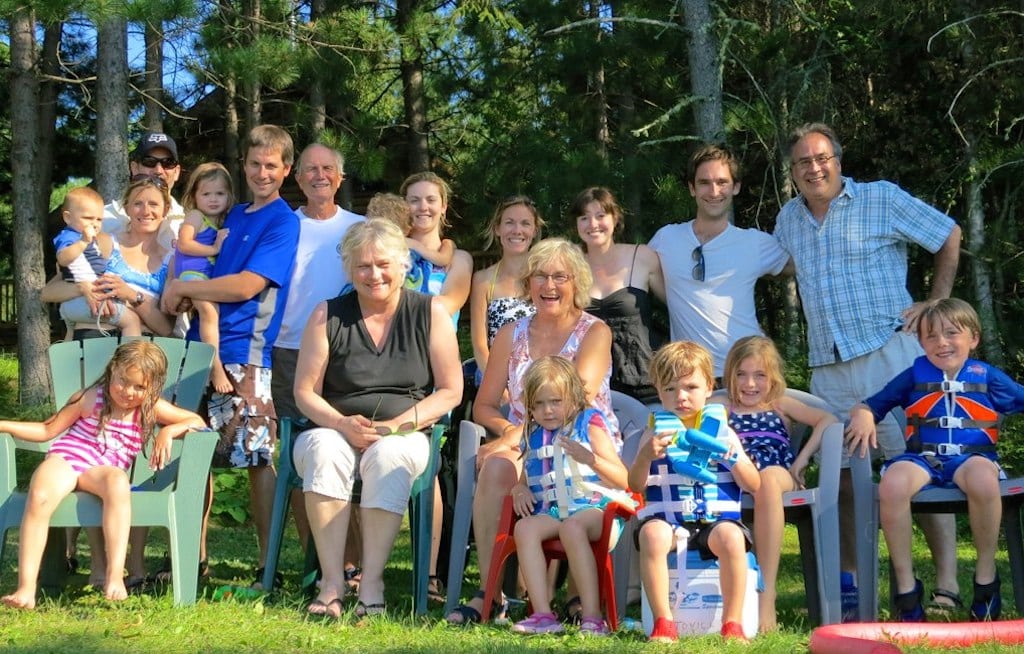Hotels' Lessons For Marketing to Multi-Generational Travelers

Skift Take
As summer inches closer in the U.S. so do the waves of grandparents and their families ready to relax and flex their spending power on vacations.
Multi-generational travel already has a strong showing at hotels and destinations around the world and if the 80 million people who will be considered older Americans by 2020 are any indication, this market will undoubtedly continue to flourish.
One Hotel's Strategy
Preferred Hotels and Resorts, previously Preferred Hotel Group, released the results of its national survey in December on U.S. multi-generational travelers. The findings emphasize that even though hotels need to think of this market holistically, the way properties communicate with the various generations should be differentiated.
"Millennials, for example, don’t want to feel like they’re being specifically marketed to," said Lindsey Ueberroth, president and CEO of Preferred Hotels and Resorts. "This market stays longer and spends more. Grandparents are the ones who are paying for these vacations but it's the millennials who are influencing where they’re going.”
"This is a loyal segment and I think hotels' successes with multi-gen travelers comes down to programming and asking yourself 'Do you have people on property that can make the trip seamless?' Are you making sure to outline how this is done on your website?' A trip can go sideways pretty quickly if these things aren't done."
Some 35% of respondents who were grandparents said they took at least one multi-generational trip during the previous year and that number is higher (41%) for "affluent" grandparents with combined annual incomes of more than $250,000. About 77% of all respondents said that these kinds of trips are "something they try to do every year," and 91% of millennial respondents share this sentiment.
Multi-Generational Vs. Luxury Travel
The survey found 35% of grandparents versus 25% of parents said they pay for multi-generational travel and multi-generational vacations now account for half of all vacations taken by both parents and grandparents in the U.S.
Ueberroth says although this market's spending power comes close to rivaling the luxury traveler market, the two can't be considered equal. However, this doesn't mean the dollar signs emanating from the multi-generational group are in short supply. In 2014, 33% of surveyed adults said they took one of these vacations and spent more than $10,000, with 18% spending more than $15,000.
Still, there are some behavioral and booking similarities with both groups. With this in mind, the company recently launched its Preferred Residences brand, which Ueberroth says holds a lot of opportunity for the multi-generational market.
"This is a much more luxury product complete with your own kitchen and it's the equivalent of a private home," said Ueberroth. "We were hearing guests say, 'we don’t have enough suite products or connecting rooms.' I think you’ll see more and more suite products being built as hotels look to increase their room products."
IHG Looks at Multi-Generational Travelers
The industry, some argue, largely still considers the millennial traveler as a backpacker bent on finding the most affordable travel options.
While this stereotype certainly exists, the reality is the millennial generation now also extends to people in their mid to late 30s who have children of their own. The following is an excerpt from IHG's 2015 Trends Report outlining the company's observations about the multi-generational travel market:
"Millennial parents are still young. They seem to want time on their own, away from their children, when traveling together. They look for places that have family-centric clubs and activities where their children will be well taken care of and will have a lot of fun. Boomers want everyone to be together.
"The marketing world is getting older and younger all at the same time but not in all the same places. The demographic picture is like a two-humped camel: a large group of Boomers (born 1946-1964) and Millennials (born 1982-2000). The big opportunity for brands is strategically managing both of these groups at the same time. That applies to any number of stay occasions, including multi-generational trips together.
"In China, multi-generational family living is very common -- quite often grandparents, parents and children live together under one roof. This extends to travel as well in recent years, and since 2013, the Holiday Inn brand began introducing suites and connecting rooms in Chinese hotels to better accommodate the needs of large families traveling together.
"In Brazil, big family groups already hire out the entire floor of a hotel to stay together. At the InterContinental Samui Baan Taling Ngam Resort, it is common for a multi-generational family to rent several villas that share a pool. This kind of travel is also becoming more common for extended families from countries such as India, where disposable incomes are growing and creating more demand for these big hotel spaces."
What Hotels Think About Multi-Generational Travelers
We reached out to several hotels and resorts for their observations on multi-generational travelers and what needs they feel the hospitality industry as a whole isn't meeting. Following are their responses:
Deborah Yager-Fleming, vice chairman and principal, Acqualina Resort & Spa, Sunny Isles Beach, Florida: "We just renovated our guest rooms and considered the functionality of our rooms and suites for multi-generational travelers. We went from two double-bedded rooms to six. We added day beds to Deluxe Intracoastal Suites and added pull-out sleeper sofas to all our rooms and suites.
"The first challenge of booking a multi-generational trip is everyone’s schedules, from firsthand experience between school schedules, sports, business commitments, etc. Setting dates is not easy. In the hospitality industry this should be the only thing that is made difficult for this market, the rest should be easy. The booking process and itinerary options should be easily accessible. If a family has to work hard to figure out how many rooms to take, if the properties are children friendly, if there are locations for the family to be together or if there are programs everyone can partake in, then we have not done a good job.
"At Acqualina we are going to be launching a new lifestyle blog which will have a family travel section in it. The blog will give multi-generational families information they need to help them book the appropriate accommodations, both for on-property and off-property activities."
Lynn Thurston, president of Finger Lakes Premier Properties, a management firm running the Best Western PLUS Vineyard Inn and Suites in Finger Lakes, New York: "The biggest change for us for multi-generational travelers is the share, email a friend and compare hotel rooms/properties features on our marketing channels. If a parent or child finds a perfect place to stay, it’s great if they can share it with grandma and grandpa with the click of a button and vice versa. Also, making it easy to receive payments from multiple people who want to share the cost of accommodations is an important feature because it easily manages the question of who will pay for these often large trips. Pictures of multi-generational families enjoying time together is a key marketing ingredient as well.
"Improved packaging of multi-generational activities that are custom tailored for each group of travelers would be of value. It requires more upfront conversation, something that is possible because staff now have more time to help guests plan because the time they used to spend on bookings is often being done by the guest online.
"There is a need for a shift in training of hospitality employees. These employees, for example, need to understand that it is often one person who is responsible for booking a multi-generational trip. This is an inordinate amount of responsibility and the decision-maker is relying heavily on the information provided by the front desk employee. Whereas before, callers would be seeking standard information.
"Now, they are seeking much-needed advice about ways to accommodate and entertain small children, busy, worn-out parents and doting grandparents. Unless hospitality employees are trained to serve the needs of multi-generational travelers, the vacation experience could become a stressful experience."
Angel Wan, suite attaché at the Towers of the Waldorf Astoria New York: "Most hotel dining room tables are not large enough. At the Waldorf, we will pre-arrange for a larger table to be brought in, or to offer a second kids table. This is especially important around the holidays!"




